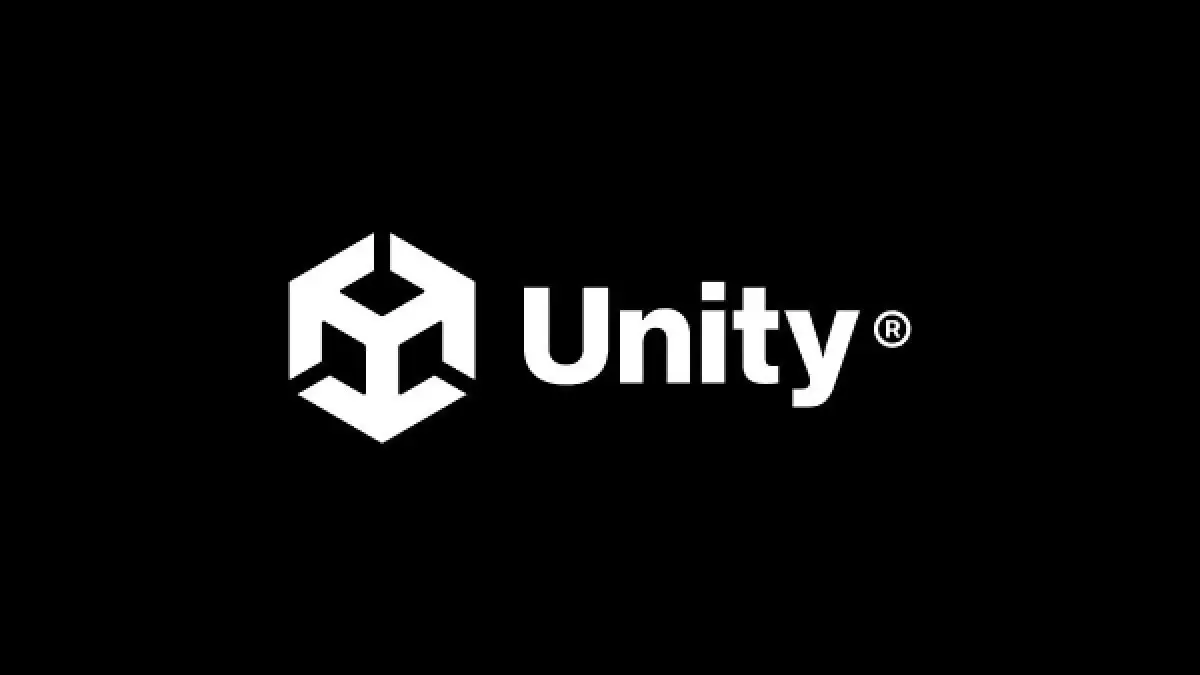Archive link: https://archive.ph/Ys676
Our Unity Personal plan will remain free and there will be no Runtime Fee for games built on Unity Personal. We will be increasing the cap from $100,000 to $200,000 and we will remove the requirement to use the Made with Unity splash screen.
No game with less than $1 million in trailing 12-month revenue will be subject to the fee.
The Runtime Fee policy will only apply beginning with the next LTS version of Unity shipping in 2024 and beyond. Your games that are currently shipped and the projects you are currently working on will not be included – unless you choose to upgrade them to this new version of Unity.
For games that are subject to the runtime fee, we are giving you a choice of either a 2.5% revenue share or the calculated amount based on the number of new people engaging with your game each month. Both of these numbers are self-reported from data you already have available.

It’s good they removed the retroactive fees… That’s the #1 thing that was wrong with what they proposed. Unfortunately for them, it’s too little too late. Community trust in Unity has already been obliterated.

Yeah they already played their hand and showed everyone what they’d do if they thought they could get away with it

At best they did, at worst this somehow comes off as “better”, because they anchored the “worse” alternative first.
https://www.pon.harvard.edu/daily/dealmaking-daily/dealmaking-grappling-with-anchors-in-negotiation/
Likely this price model is worth a lot to them anyway, because there likely some big fish that are stuck in, and who are better off just paying Unity than sinking all that development cost to switch to a different engine.
The small projects that go under or jumps ship is probably not worth that much to them anyway, but probably generates an ongoing support cost neither way.
Thus, cynically speaking, Unity is probably better off like this, and they even got some PR out of it. Wether good or bad.

They’re good for the short term possibly. But longer term, people will be wary of getting in too deep with them and will seek out other alternatives. A game engine like unity thrives on large numbers of skilled users and lots of games using the engine. One of those users or games could’ve been the next big win. Now that might go to unreal instead.

Considering their business seemed to run in the negative - turning that around probably matters the most.

Why would anyone switch from Unity to Unreal to evade the revenue share? Both engines have that.
Godot might be an alternative.

Yeah, the actual changes going forward might not be a huge deal.
But the fact that they made an attempt to retroactively change license terms means that you can never trust them again.

Indeed. At this point it’s a “well, they got rid of the retroactive fees… this time, what about in five years?”

We didn’t even have to wait five years since the last time they tried something like this!

Unfortunately for them, it’s too little too late. Community trust in Unity has already been obliterated.
yeah, i’d be shocked if they’ll ever put the genie back in the bottle. seems pretty clear that anybody who wants stability and isn’t contractually obligated to stick with Unity should finish their current project and jump ship before they do this again in the future.

I think them getting royalties on products made by their customers is something that will be adopted by other software if it ends up successful, and that’s worrisome to me. Imagine if Crayola wanted a percentage of an artist’s earnings for use of their color pencils. We’re gonna be nickled and dimed in every aspect of our lives soon. Photoshop is now a subscription (which is bad enough), but imagine if they decided they want a percentage too. There needs to be even more pushback on this imo.

This is the model Unreal uses, and it’s not a bad idea. You accept those terms because that engine gets you up and running with all the latest modern software features far, far faster than if you coded an engine yourself, and as we all know, time is money. So if you don’t like those terms, use another engine, but they’re speeding up your ability to put out your product without spending that money up front. Unity’s big issue was not only charging for something that the developers have no control over but also that they changed the terms after the fact. A revenue share also aligns both business interests. Both the engine maker and the developer have the desire for the game to be as successful as possible, so when the developer prospers, the engine maker prospers. That’s another thing that was out of whack with the previous terms; the game being successful would be good for Unity but potentially bad for the developer.

“Not a bad idea” if you’re the one making the money, that is.
Would you think it’s a good idea if expanded to other things? How about your hammer coming with a license that if you build anything with it, you owe royalties to the manufacturer of the hammer? Or your car manufacturer saying that since they make your commute so much easier than other cars, they’re entitled to 10% of your salary – but you’re welcome to use another car if you don’t like it (spoiler: all new cars come with similar licenses, but you’re welcome to take the bus.) Do any business on your computer? Microsoft now wants 10% of your salary because time is money, but if you don’t like it you’re welcome to use something else. And how about your cell phone?

Because this is a “software as a service” product that actually operates sort of like a service. Technology moves fast, and the company that makes the game engine is continually adding those latest benefits for you, especially Unity and Unreal. And again, the risk of building your game is now back-loaded. Unreal is totally free up front, and Unity is dirt cheap up front (sometimes free). The revenue share model means you only pay royalties once your game passes a certain threshold of success, so their incentives are aligned with yours. This is unlike most consumer products where you may never make any revenue off of what you create with them at all, and you’re paying up front. The closest analogy would be if your car was free but they only took a percentage of your proceeds if you’re a professional driver, and only after you made about $10k in a quarter.

I know this sounds like an internet edgelord, but it’s like they want us to build the guillotines.

This has been the business model of game engines since at least the early 2000s and I think it’s fine. A significant portion of the code that you ship is theirs, after all. A flat fee would need to be quite high and it would scare developers/investors away since the income of a game is so hard to predict. Unreal and Cryengine work the same way.
That’s actually a very good point, especially with the number of EULAs that we encounter on such a regular basis. How hard would it be for Adobe to slip a clause in about royalties without us noticing?
Is there even a stated reason for this change beyond just simple greed? To my knowledge they aren’t maintaining any servers or other cost centers for the games developed on Unity.
As you said, hopefully there’s still enough of a negative reaction to this that it doesn’t take hold elsewhere.

As far as gaming engines go, Unreal Engine already does this. Not dismissing your point, it is concerning if rent seeking spreads among artistic tools, but this is not a Unity invention.

I really hope people don’t get over this just because Unity went “we’re sorry we got called out for trying to screw you”. Unfortunately, like with how little effect the Reddit blackout had, I fear most will just accept it because Unity is what they’re already used to.
The Reddit blackout had more of an effect than it appears. I saw an article a couple of weeks ago that showed commenting and posting was down ~50% since the blackouts; and I can safely say I haven’t gone back to Reddit since, and I’m sure others have made similar choices as well.
People can have trouble “voting with their wallets,” but I genuinely believe it is possible and does have an effect. Hopefully people do not forget the choices Unity has made here; but even if they do, Godot has already gotten a significant boost from this catastrophe.

I’d be interested in reading that. I know personally on bad days I’d sometimes have over 100 comments. (Bad meaning too active). Since the first day here on lemmy I haven’t even logged into my reddit account. They burned me hard by killing Sync for Reddit.
It follows the 90-9-1 rule though, so while they have users who use it, I think they burned a lot of the people who posted and commented.
I was able to track down the article (Garbage Day URL, Archive.today URL).
The portion I was referring to was:
Most major subreddits show a decrease of between 50 and 90 percent in average daily posts and comments, when compared to a year ago. This suggests the problem is way fewer users, not the same number of users browsing less. The huge and universal dropoff also suggests that people left, either because of the changes or the protests, and they aren’t coming back.
Personally I was not contributing much there; but I suspect the users they offended most were the power users, which is where most of the content comes from.

Reddit power users were the most likely ones to care enough about the platform’s direction to be willing to give it up, I would think.
For most Reddit users, it’s just an endless stream of information, different in form but not different in function from any other social media platform.
But for the people posting content (posts and comments), losing their tools was a huge barrier to continuing to engage, and the complete disrespect and libel to the Apollo dev made a lot of those most invested in Reddit very angry.
I used to browse Reddit 99% of the time using BaconReader, and have for about a decade. I’m just not going to comment there any more, and I don’t enjoy engaging when I can’t respond. Since June, I’ve only gone to Reddit from Google search results, and then left immediately after.
It’s expected that losing a small percentage of users has a massive impact on the quantity and quality of created content, when those leaving are disproportionately power users.

Comment for visibility of this

Well with Reddit at least, it didn’t make the company change their course.

Which is fine, it’s their company/product to ruin if they want to. But now lemmy is taking off because they did that, and thats great.

The difference is having skin in the game. The problems with reddit didn’t really effect a lot of the users directly and definitely didn’t threaten most of their livelihoods (aside from a small number of app developers). Unity on the other hand is a tool people use to make a living and when it threatens that I imagine it will result in much more hesitancy to continue using it.
I may be misunderstanding their new fees, but this still feels like a major disincentive for using Unity. Even with revenue sharing instead of per-install fees, it is still being sprung on all the developers. Unity is now being upfront about not needing to use the newer Unity versions; but if there are engine bugs in the older versions, there is not much choice in if they have to update.
I would certainly think twice before choosing Unity at this point.

For new projects it’s absolutely a terrible idea to use Unity. The old versions not being subject to the new licensing is great news for existing projects that wouldn’t have been able to switch engines though.

It’s not inherently a bad thing. If you’re making $1m /y in revenue, you can afford to pay licensing fees.

If you’re making a mil a year in revenue there’s a good chance your profit margin is tiny and licensing fees could obliterate it.


